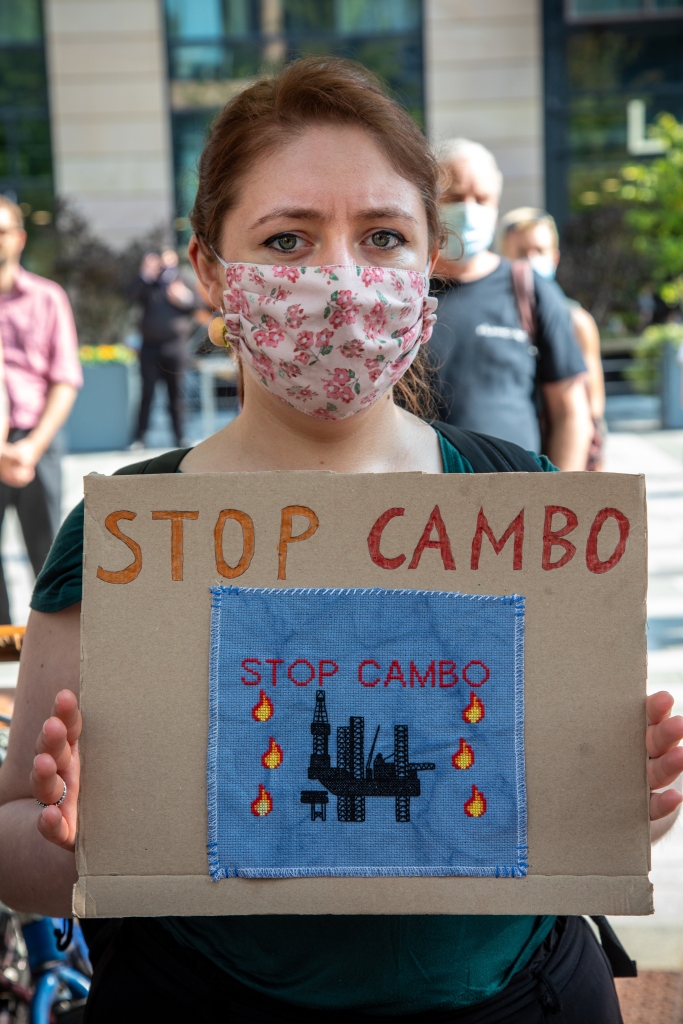Download this review as a PDF here
TERRY BROTHERSTONE reviews Crude Britannia: How Oil Shaped a Nation, by James Marriott and Terry Macalister (London, Pluto Press, 2021)
Even Alok Sharma – Boris Johnson loyalist, former Tory cabinet minister, now president of the COP 26 UN climate summit in Glasgow in November – says he recognises it: the planet is in the last-chance saloon. Indeed, the scientists on the Intergovernmental Panel on Climate Change (IPCC) warn, the clock – to borrow George Orwell’s opening to 1984 – has already struck thirteen. “Human activity,” reported The Guardian,“is changing the Earth’s climate in ways unprecedented in … hundreds of thousands of years”: some potentially disastrous consequences are “inevitable and ‘irreversible’”.
Only the worst effects can now be alleviated, and that only by decisive action drastically to reduce greenhouse gas emissions. Without a serious move to end reliance on fossil fuels, human society as we know it faces extinction. And, argues this book, Britain is a nation the modern existence of which has been shaped by oil. What hope is there for the future?
The publication of Crude Britannia: How Oil Shaped a Nation is timely indeed. That James Marriott and Terry Macalister had fun researching it resonates in their writing, but it must have been hard work too. It took them about three years longer than planned, when the instability that afflicted Britain in the years following the 2007-09 financial crash prompted their project. The effects of austerity; the near-miss 2014 Scottish independence referendum that raised the now immanent possibility that the 314-year-old union with England could end, and with it the fragile constitutional underpinnings of the United Kingdom; “Brexit”; growing fears of climate catastrophe … it all made the nation look unprecedentedly insecure.
Experts in their different ways in the central socio-economic role of oil in the modern world, Marriott and Macalister decided to investigate the part it had played in holding the Britain of recent decades together – and is now playing in tearing it apart. They would travel the country, researching its post-World-War-II relationship with the industry. Then, as they were reaching their journey’s end, the Covid-19 pandemic dealt the final blow to what to them – children, as they introduce themselves, of the years in which oil replaced coal in the engine-room of British prosperity and sustained the underlying certainties of the country’s political economy and social life – had seemed an “era of optimism”. They “had spent [their] lives writing on the oil and gas industry and its impacts around the world”, and now wanted to understand “what was its role … in Britain’s turbulence?”
Marriott and Macalister make an ideal pair to ask the question, and they have devised an entertaining, instructive and original way of starting serious debate about answering it. The delay in their publication plans, moreover, means that their book has arrived at an opportune moment. The protest movement is gathering momentum, notably in London against the Science Museum’s acceptance of Shell’s “greenwashing” sponsorship for its “Future of the Planet” exhibition and, in Scotland, against further North Sea oil exploitation, in the first place of the Cambo field, west of Shetland. And planning is well underway for major demonstrations at the COP 26 summit that the smooth and well-travelled (although never-quarantined) Sharma is scheduled to chair in Glasgow in November – described by Kevin McKenna in The Herald (Glasgow) recently as an exercise in entrusting “our climate recovery … to the sector chiefly responsible for creating it … the planet’s chief pollutant: global capitalism.”
Macalister, now Senior Research Fellow at Wolfson College, Cambridge and a freelance journalist, was for some years Energy Editor at The Guardian – a position in which he clearly formed working relationships with key figures in the oil industry, access to whom adds important insights to Crude Britannia. Interviewees include senior politicians such as Michael Heseltine and “Green Deal” Corbynite, Rebecca Long-Bailey; and chief executives such as Royal Dutch Shell’s Bernardus (or “Ben”) van Beurden, and John, Baron Browne of Madingley. Browne was British Petroleum’s chief executive from 1995 until 2007, and his shape-shiftingly image-conscious, but never less than ruthless, career punctuates the story at key moments. His 41 years with BP ended following the revelation that he had lied about his personal life in a sworn court deposition. Now a cross-bench peer, he emerges as one of the key business figures in the “new Labour” years. His ultimately unsuccessful attempts to rebrand BP as “Beyond Petroleum” with a sun-god logo, dovetailed well with premier Tony Blair’s short-lived “third way”, capitalism-with-a-human-face ideology.
Read the rest of this entry »



 Posted by Gabriel Levy
Posted by Gabriel Levy 
